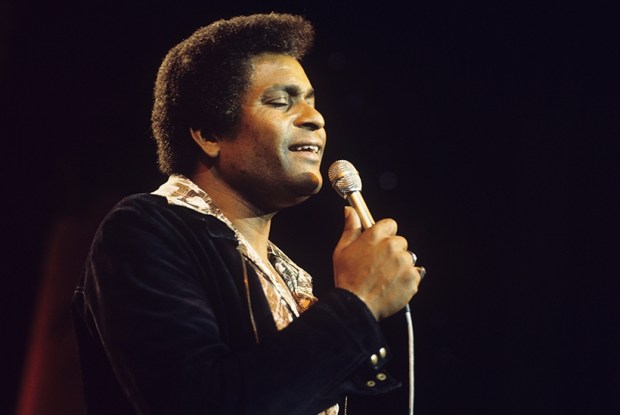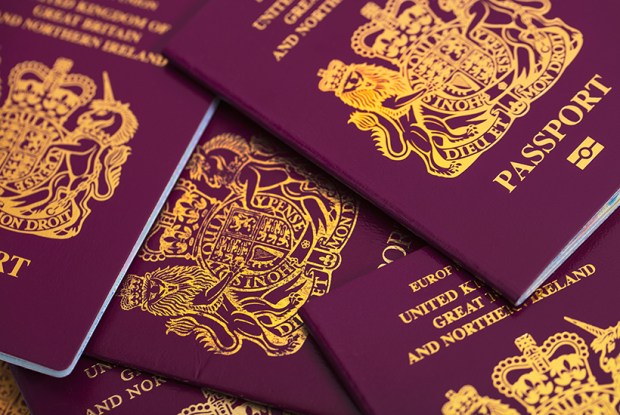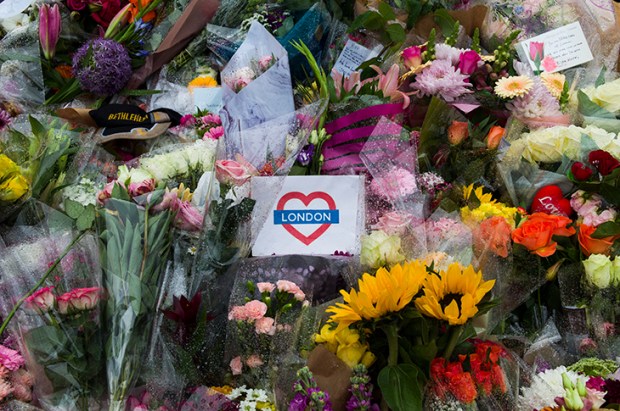How should we refer to non-white people, and foreigners in general, given that of course we do sometimes need to mention them, perhaps over dinner in White’s or when mulling over where to go on our holidays? This is an important question, because the approved terminologies seem to shift by the day, if not the minute, and we could find ourselves in a lot of trouble. I remember the late US politician George Wallace, when he was governor of Alabama, being ticked off for having used the word ‘negroes’. Quite unacceptable, he was admonished — the correct term is ‘blacks’, and there’s an end to it. ‘Sheesh,’ Wallace replied, ‘we jes’ got used to calling ’em negroes.’ I accept, of course, that when it comes to the issue of how not to racially offend someone, George Wallace is an imperfect role model. In later life he got a bit nicer and said he was very sorry. As we all will.
I was drawn to this topic as a consequence of the plight in which one of our most celebrated young actors, Benedict Cumberbatch, finds himself. During an interview with the black presenter Tavis Smiley on a US TV show, Cumberbatch bemoaned the lack of opportunities for black and ethnic minority (BME) people in the UK film and television industry. This is something we should all do, given the opportunity, when abroad — slag off the UK for its inherent, antediluvian racism: Je suis Lenny Henry!
The problem, though, is that Benedict did not use the term BME. He used the term ‘coloured people’. Oh dear. Cue the inevitable Twittercaust. How very dare he! There was a massed screeching of outrage and Cumberbatch was forced into making one of those very familiar public apologies, nose scraping the ground, visions of his highly promising career going up in racist smoke.
It probably did not help that a) Cumberbatch was the star of the extremely PC movie 12 Years A Slave and b) his own family made its humungous fortune out of slave plantations in the Caribbean. I’m rather with the Labour MP Chris Bryant on the unhealthy profusion of toffs in our films and in the music charts, and have never had much time for either Cumberbatch or his equally well-bred and agreeably fey colleague Eddie Redmayne, whom my wife slavers over.
But I feel a sparrow fart of sympathy for him now. Apparently the correct term in the USA is not even ‘black’, but ‘people of colour’. Forgive me, but there is no meaningful semantic difference between ‘people of colour’ and ‘coloured people’. Why does one offend, then, when the other does not? Isn’t this a case of confected outrage and manufactured sensitivity? To his credit, the presenter, Mr Smiley, stuck up for Cumberbatch — largely because he had been making a very PC point with which nobody anywhere is allowed to disagree, or the Twittercaust would turn into Twittergeddon, and that would be that.
People of colour? Well, it’s better than ‘black’, I suppose. That term annoys me because it is inaccurate — I have never, ever seen a person who is truly black, and nor have you — and because it is a demeaning political cognomen, dreamed up by witless white liberals. It is a synonym for ‘not-white’ and is designed to lump all ethnic minority people beneath one flag, defined by the fact that they are not white and thus objectively oppressed by whitey’s cultural and economic hegemony. A quarter of a century ago the Commission for Racial Equality instructed journalists that British Chinese people should be referred to as ‘black’. You can imagine how that went down with the Chinese.
But anyway, ‘black’ has now been superseded over here by the cumbersome ‘Black/Minority Ethnic’, shortened to the horrible ‘BME’ — its implication exactly the same as ‘black’. You are all defined by your non-whiteness, the demonym tells us, by your solidarity in the struggle against oppression, and you are all the same — any differences you might cleave to are simply the consequence of what Marx rightly termed ‘false consciousness’. You are defined by your difference from the majority, singled out by the colour of your skin as a beleaguered and put-upon minority, and we would enjoin you to revel in your acquired victimhood. The third-generation descendent of Jamaican immigrants, the recent arrival from Vietnam, the businessman from the Punjab — all BME, all the same. This is a palpable nonsense, isn’t it? Both ‘black’ and ‘BME’ are presumptuous and, I suggest, racist terminologies. The country would be a happier place if we did away with both terms.
Benedict is not the first Brit to be caught out on the word ‘coloured’; the excellent football pundit Alan Hansen used the same term while making a very similar point to that made by Cumberbatch. Hansen of course grovelled afterwards. And it is true that the term ‘coloured’ has been a little de trop for the past 25 years — although if you feel some pressing need to differentiate between people who are ‘white’ (none of us are) and people who are not, then ‘coloured’ seems to me marginally less racist than ‘black’. But maybe I’m behind the curve on this one.
Got something to add? Join the discussion and comment below.
Get 10 issues for just $10
Subscribe to The Spectator Australia today for the next 10 magazine issues, plus full online access, for just $10.















Comments
Don't miss out
Join the conversation with other Spectator Australia readers. Subscribe to leave a comment.
SUBSCRIBEAlready a subscriber? Log in